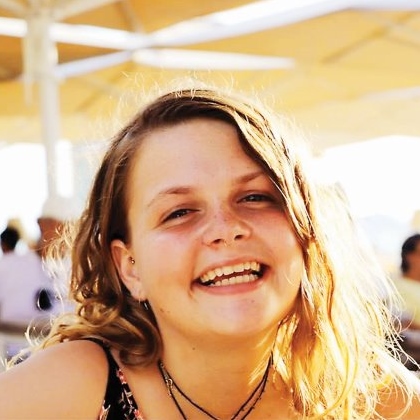News
Millennials strive for change in a less than clear-cut world
While the South African youth of 1976 had a clear-cut fight on their hands against apartheid, today’s young people are tackling issues like gender-based violence, climate change, and inequality.

TALI FEINBERG
Some say millennials are focused on themselves and are not worried about the world around them, but there are many who are passionate about righting wrongs.
“Coming from Habonim, I am surrounded by strong-minded and passionate Jewish youth, many of whom are taking action in their schools and homes,” says Erin Gordon, a 23-year-old graduate from Johannesburg.
“There is apathy within the youth, but I believe we are not hopeless. Rather, we are on the brink of a breakthrough,” she says, pointing out that the youth is getting restless with the status quo.
Gordon is one of many young people who are passionate about changing South Africa and the world around her. While the previous generation’s youthful activists rallied against apartheid, today Jewish youth are campaigning for everything from women’s rights to freedom of association on campus.
“I am passionate about fighting for gender equality. As a young woman in South Africa, the issue of gender inequality and gender-based violence is something that is present in our day to day lives. It falls on the youth to take control of the situation, and ensure that the world is a safer place for women,” says Gordon.
“Even in a privileged community such as the Jewish community, women and those who don’t conform [to established gender roles] have a higher risk of becoming victims of abuse and sexual violence. Thus, it’s an issue we should all work to fix.”
Jordan Seligmann, an actuarial science and finance student, says he is passionate about fighting for freedom, individualism, the rule of law, and the rights of the Jewish community, particularly on university campuses.
Formerly chairperson and currently the president of SAUJS (the South African Union of Jewish Students) in the Western Cape, he has also held senior positions in the Democratic Alliance Student Organisation (DASO) and the African Students for Liberty (ASFL).
“On university campuses, I have dealt with anti-Semitism in its various manifestations. The Jewish community has contributed enormously to the development of this country economically and politically. I believe that we have the potential to contribute even more to the future development of South Africa, but it requires Jews to be able to feel safe enough to express their culture and religious beliefs in this country,” he says.
Seligmann is a founder of Progress SA, a new organisation on campuses that promotes the principles of liberty, opportunity, non-racialism, non-sexism, the market economy, and the rule of law.
“When we founded Progress SA, we all had our own reasons why these values were important to us. We had experienced the Fees Must Fall protests, and the consequences of those protests. We had witnessed identity politics on our university campuses, and the fact that there wasn’t an effective counterbalance to the rising tide of regressive collectivist ideologies that were informing university debate and policies,” he says.
“These principles are important in South Africa. Every day, we hear about state capture undermining state institutions’ ability to function, and about how politically-connected individuals loot state coffers and avoid prosecution for illegal activities. Anyone who rightly objects to these occurrences believes in the rule of law. The idea of judging individuals on their own merit and not on their race stems from individualism,” he says.
“I believe there are many young Jews who are passionate about various causes in our community. While I do believe that more young Jews could get involved in the NGO (non-governmental organisation) space, there are certainly many who already volunteer for causes they care about.
“We can either sit back and do nothing while our country goes down a dark path, or we can get involved and change the course.”
Seligmann believes that the Jewish community still has a large role to play. “We must continue to fight for future prosperity for all inhabitants of South Africa, and to be an example for the rest of the country to follow, both for [the sake of] our success, and our compassion for the rest of humanity.
“The youth have the duty to fight for a free South Africa. The Soweto uprising reinvigorated the struggle and led to the end of apartheid and the dawn of freedom. However, the price of freedom is eternal vigilance.”
Kayla Bagg is studying psychology and gender studies at the University of Cape Town. She, too, is passionate about feminism and bridging the gender gap.
“I have been discriminated against because of my gender countless times. It’s time the Jewish community in South Africa recognised the negative impact of discrimination on the basis of gender, and is able to make changes,” she says.
“This is an issue that affects all mothers, daughters, sisters, cousins, and aunts – where people cannot ignore the increasing discrimination occurring in our society. Behind every cause that Jewish youth fight for, gender equality plays a role in determining the path one can choose.
“Jewish youth in South Africa should come together in order for us to exert the necessary changes we want to see in the world,” Bagg says.
“If we truly want to make a difference, this will not happen until the group divide ceases to exist. The youth should never be underestimated, and if we want our Jewish community to continue growing, it’s important to hear our voice.
“This Youth Day, I would like all Jewish youth to take the small step towards pursuing something they are passionate about,” she says. “We have the power to make the change – there is nothing stopping us.”
Says Gordon, “We should take inspiration from the youth of 1976. They had the bravery and determination to change what they believed was wrong. We should look to the 1976 uprising for inspiration in creating lasting and legitimate change in our society.”